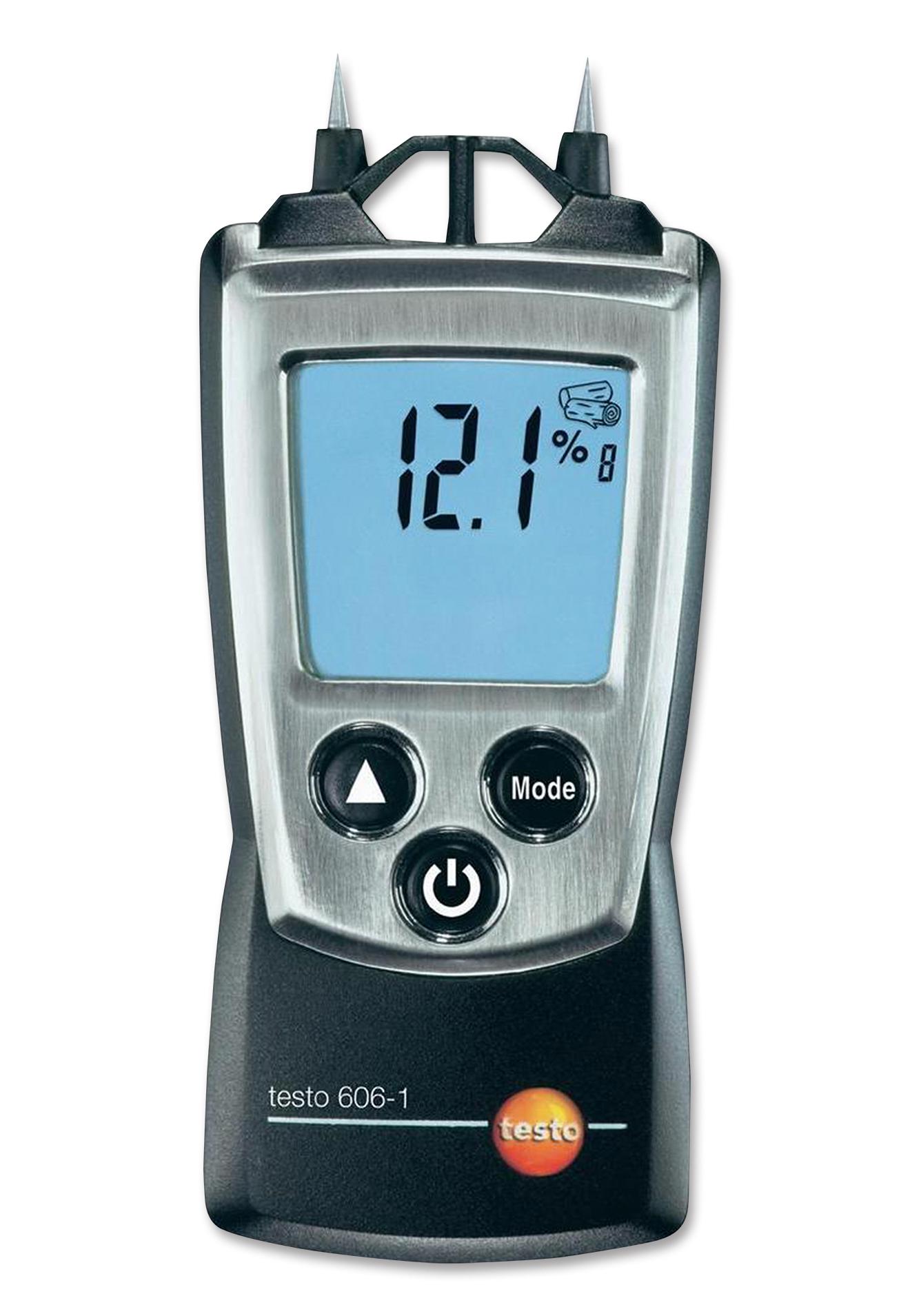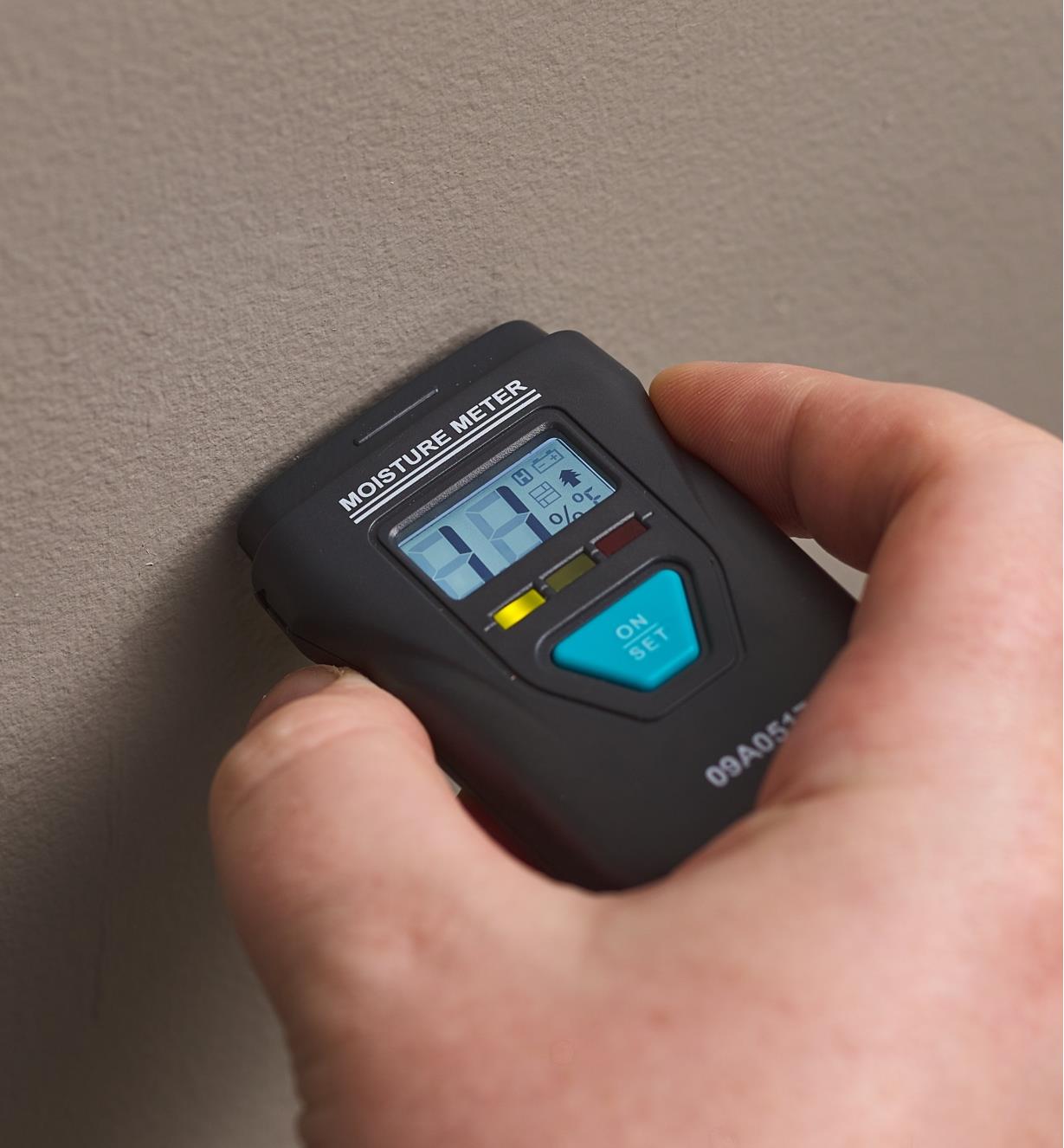The Ultimate Guide to Moisture Meters: A Comprehensive Summary and Exactly How They Can Save You Money
In the realm of building maintenance, construction, and various sectors, the relevance of properly gauging wetness levels can not be overstated. Moisture meters function as crucial devices in identifying and checking moisture web content in products, helping in avoiding costly problems and making certain the high quality of products. Understanding the subtleties of different types of dampness meters, their applications, and the prospective cost-saving benefits they supply can be a game-changer for organizations and experts alike. Finding how these tools can not just enhance processes yet likewise add to monetary savings is a trip worth starting.
Sorts Of Moisture Meters
One typical type is the pin-type wetness meter, which gauges the electrical resistance in between two pins placed right into a material. Pinless dampness meters, on the other hand, use electro-magnetic sensing unit plates to scan a bigger location without creating damages to the product's surface area.
Infrared moisture meters determine the thermal buildings of a product to identify its dampness material non-invasively, making them helpful for applications where pin or pinless meters may not be suitable. Comprehending the various kinds of wetness meters available can help markets select the most ideal device for their specific wetness dimension demands.

Benefits of Using Moisture Meters

In addition, using dampness meters can cause enhanced power performance. By determining locations with high dampness degrees, such as leaks or poor insulation, changes can be made to enhance energy preservation and decrease utility prices. In agricultural setups, dampness meters play an essential duty in enhancing crop returns by making it possible for farmers to check dirt dampness levels and make informed watering decisions. On the whole, the benefits of using moisture meters extend across various markets, providing affordable remedies and promoting much better high quality control techniques.
How to Choose the Right Moisture Meter
Choosing the suitable wetness meter includes thinking about essential aspects such as material compatibility, measurement range, and calibration accuracy. When choosing a dampness meter, it's necessary to ensure that the meter is suitable for the specific product you will certainly be screening. Different materials have differing electric residential properties that can influence wetness readings, so selecting a meter made for your product is vital for precise results. Additionally, think about the measurement variety of the dampness meter. Make sure that the meter can discover moisture degrees within the variety required for your applications. Calibration precision is one more critical variable to keep in mind (Moisture Meter). Go with a moisture meter with dependable calibration to guarantee specific and regular analyses. Some meters might call for regular calibration modifications, so understanding the calibration procedure is essential. By very carefully reviewing these elements, you can choose a moisture meter that satisfies your demands and gives precise dampness measurements for your tasks.
Correct Methods for Moisture Meter Use
To make certain accurate dampness analyses and maximize the performance of a dampness meter, using proper techniques is necessary. When utilizing a pin-type wetness meter, insert the pins or probes into the product being checked up until they make complete get in touch with. By following these correct methods, users can count on their moisture meter to give credible dampness levels, assisting in avoiding costly damages or ensuring top quality in various applications.

Price Savings With Moisture Meter Applications
Just how can the critical use of wetness meters cause considerable cost savings throughout numerous markets? Wetness meters play an important function in cost financial savings by stopping prospective damage and ensuring quality assurance in various industries. In the farming market, wetness meters help in identifying the optimal time for collecting crops, preventing excess or over-drying wetness that can impact the end product's top Bonuses quality. This exact monitoring aids farmers prevent unneeded losses and maximize their return.

Furthermore, in the food handling sector, wetness meters are necessary for keeping an eye on product quality and ensuring conformity with safety and security guidelines. By precisely measuring moisture web content in food, producers can avoid spoilage, keep freshness, and decrease waste, causing considerable cost financial savings. On the whole, the calculated application of moisture meters is a valuable financial investment that can result in considerable price reductions and improved effectiveness across numerous markets.
Verdict
To conclude, moisture meters are beneficial tools for identifying and determining moisture degrees in various materials. By utilizing the ideal moisture meter and complying with proper methods, customers can efficiently protect against costly problems brought on by excess moisture. Buying a top quality moisture meter can cause significant cost financial savings in Get More Information the future by identifying prospective concerns early on and allowing punctual removal. Ultimately, moisture meters are necessary tools for maintaining the integrity and durability of frameworks and products.
Dampness meters offer as essential tools in discovering and keeping an eye on moisture material in materials, helping in avoiding costly damages and ensuring the top quality of items. Infrared wetness meters determine the thermal buildings of a product to identify its moisture web content non-invasively, making them valuable for applications where pin or pinless meters might not be suitable.Moisture meters supply vital advantages in accurately keeping an eye on and evaluating moisture degrees in diverse products and atmospheres. In farming setups, moisture meters play a critical function in optimizing plant yields by making it possible for farmers to keep an eye on soil wetness levels and make notified irrigation choices.In conclusion, wetness meters are useful devices for finding and measuring dampness levels in different products.
Comments on “Recognizing the Various Types of Moisture Meters and Their Applications”